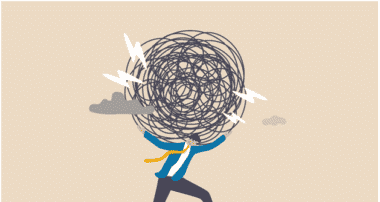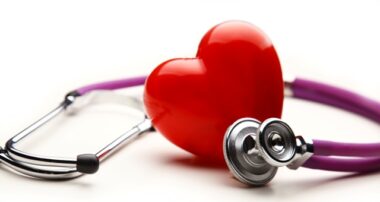It’s often said, in hashtags and elsewhere that recovery is possible, and of course, it is. But the truth is, recovery from an eating disorder is never an easy process, and it’s often a long-term one.Triggers for relapse can happen at any time and to anyone. While most treatment centers work to get their clients ready for a return to life outside the facility with the tools needed to maintain recovery, there are always obstacles to recovery that a recovered individual will need to overcome. Fortunately, there are many techniques a recovered person can use to avoid these triggers for relapse.For a person fresh out of residential treatment and facing their first courageous step to a happier, recovered life, it’s essential to be prepared for what’s to come.
By understanding the most common roadblocks to avoid, new graduates from a treatment center and their families can endeavor to sidestep the triggers that cause relapses of disordered eating behaviors. Recovery is hard work, but whether you’re just starting on a recovery journey or several years down the road, the rewards for avoiding relapse are worth it. The following tips are essential to helping parents and teenagers with eating disorders continue their recovery well beyond their time in treatment.
Keep Your Family Involved in Your Recovery Even After Treatment Is Over
When a person comes home from an eating disorder treatment center, those closest to them often want to respect their space; out of an attempt to avoid suffocating someone, they may inadvertently isolate them. Although a certain amount of autonomy and self-sufficiency is needed for a full recovery from an eating disorder, they will need continued support for months if not years following residential treatment. Nothing gives a person a better shot at maintaining recovery long-term than involvement and support from their friends and family.
This doesn’t mean coddling, however. Setting clear guidelines about communication and self-reliance not only helps the support system maintain equilibrium but also communicates their love and support. Be available when your loved one needs you, listen, and empathize. It’s easier for many people in a recovery situation when they have a clear path to follow. This is your journey in the end, after all. The family’s job is just to be ready to lend an ear and show their support.
Be Mindful of When You Might be Falling Back into Old Habits
Although eating disorder treatment centers teach productive coping skills to replace disordered eating behaviors,people face a lot of different stressors that may take a toll if not properly addressed. When they become too stressful, it’s all too easy to return to using disordered behaviors.Since stress is a powerful trigger for negative emotions, disordered coping mechanisms are an ever-present risk to come back.
As an example of relapsing into disordered behaviors, consider someone who has gone through treatment for bulimia nervosa. During treatment, they may have learned how to meditate or do yoga when they feel stressed or unhappy about their body instead of binge eating and then purging. But back in the world outside the treatment center, they might go through a breakup or lose their job and instead of using the techniques learned in treatment, they could go back to the earlier disordered behaviors.
When a recovered individual can rely on healthy coping skills learned in treatment, they are better able to avoid disordered behaviors overall. The recovery process is a lifelong venture that everyone to learns how to manage in a unique way that works for them, but this comes with time. Many treatment centers offer alumni sessions or group Zoom meetings for their graduates. They’re a great way to keep connected with your peers and discuss stressors and triggers with a group of people who share your experience. There are also plenty of online groups (even on the much-maligned social media platforms) which can provide the same kind of support.
Avoid Arguing About Symptoms, Behaviors, and Thought Patterns
This one is more for the support system than for the individual – but if you’re in recovery, don’t hesitate to pay out ground rules concerning topics of conversation. Friends and family might think that presenting an argument based on logic about the dangers of eating disorders and disordered thought patterns will convince their loved one to simply stop having an eating disorder. Unfortunately, this is almost always the exact wrong way to approach the subject. Normally, continued behavioral therapy is necessary to produce continued success in recovery. And trying to argue with someone about these patterns without professional help can be counterproductive and push them further into those disordered patterns.
Simply trying to argue the point does very little in helping a person overcome disordered thought patterns and behaviors. Even if it temporarily helps, it enforces negative feelings about the situation and makes them less likely to reach out for help. Instead of using logic, it is important to reach out to the professionals in their care team for additional support. Before treatment, loved ones might want to involve a professional therapist or interventionist to discuss these issues rather than trying to tackle them personally.
After treatment, loved ones should continue to avoid negativity or arguments regarding eating disorders. There may be a need to return to the eating disorder treatment centers for additional care and guidance on a day treatment or outpatient basis. If a potential relapse is caught early, it is much easier to avoid returning to disordered eating patterns, so keep an open line of non-judgmental discussion open. Alumni groups provided by the treatment center can also help in this regard. Parents can usually attend these sessions and workshops alongside their children to learn how to provide their support through every stage of recovery.
The Earlier You Get Started, the Better the Outcome
Mental health disorders have a way of becoming entrenched. Various studies have shown that the sooner after a person begins to show disordered eating patterns that they get treatment, the better their chances to secure a positive outcome.
If you or someone you love is showing the signs of an eating disorder, don’t panic. There is always a way to help them get better. Reach out to your therapist or an adolescent eating disorder treatment center, and see them on the path to recovery.












